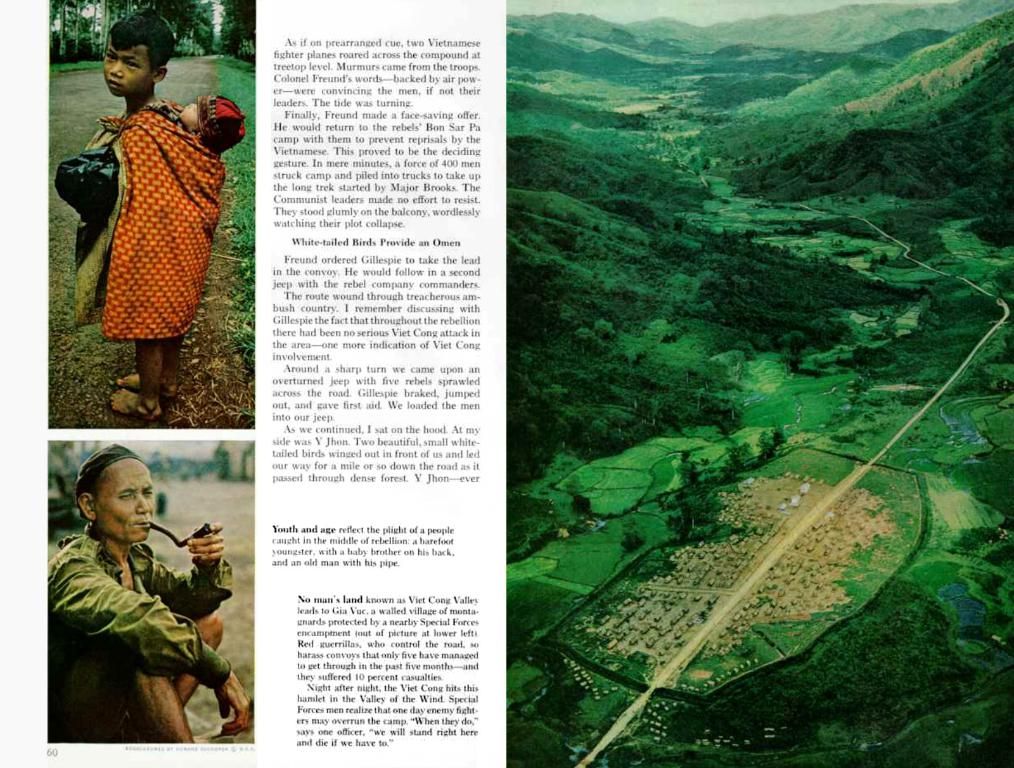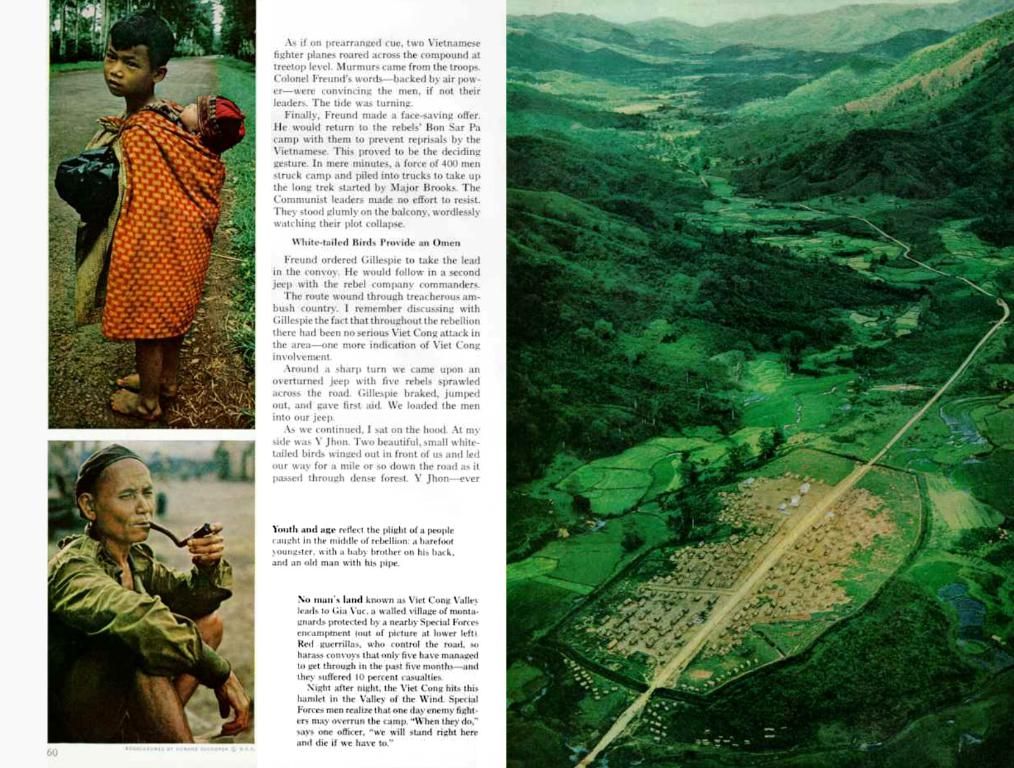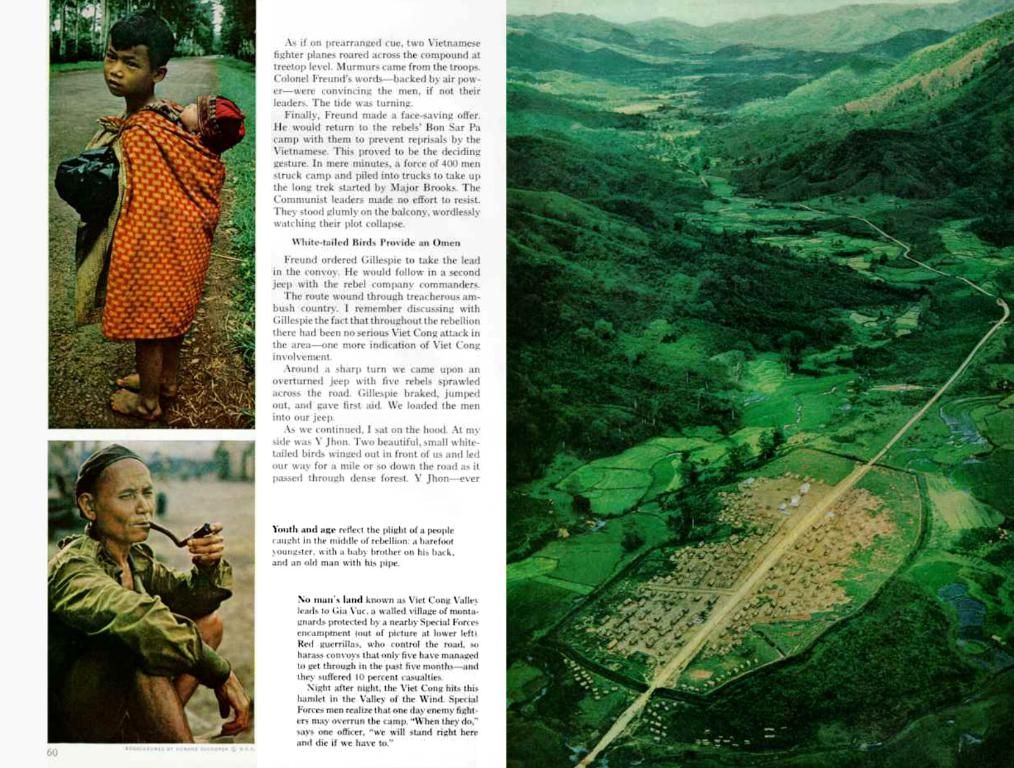Kuban's winemakers face a significant workforce deficit, according to regional industry representatives, citing a severe shortage of personnel.
Struggling Vineyards: A Persistent Labor Conundrum in Krasnodar's Wine Industry
Grapple with grape-picking: It's no secret that the winemaking industry in the Krasnodar region is grappling with a formidable workforce shortage.
The industry finds itself in the unenviable position of battling to fill around half of its specialist roles. Winery owners are left exploring diverse strategies, from enlisting students to enhancing wages, yet the vacancies persist.
The labor crunch is pervasive across all stages of production - from cultivating grapes to marketing the final product. A staggering 42% of winemakers in the region identify the lack of personnel as the main risk to the industry's growth, as reported by RBK.
The region's weighty absence of experts ranges from viticulturists and agronomists to equipment operators, winemakers, microbiologists, equipment fitters, HR specialists, accountants, and tractor drivers.
Desperate to offset the shortage, large wineries in the region upped wages for in-demand roles by more than 20%, on average, in the last year. This trend is mirrored at competitive wineries like "Chateau de Talu" and "Fanagoria," where wages have risen by 10-30% and 23.1%, respectively.
During the peak season, line workers command an average monthly wage of over 100,000 rubles, dipping to 70-75,000 rubles during the off-season.
The worrisome employment picture isn't confined to the Krasnodar region alone; the Kuban region as a whole is grappling with critical labor shortages in three key sectors, as previously highlighted by "Live Kuban" (subscribe to our Telegram channel here: https://t.me/live_kuban).
Understanding the Understaffing Factor: A Chorus of Challenges
Some of the prominent factors causing the workforce shortage include military conscription and conflicts casting a shadow over the labor pool, the impact of economic sanctions on access to vital machinery and fertilizers, wage pressures inflating the cost of living, demographic shifts leading to an exodus of workers to urban areas, a gap in training and skills, and an insufficient emphasis on promoting specialized knowledge among the local workforce.
Potential Paths Forward: Restoring Balance to the Winemaking Landscape
To address the workforce gap, considerations revolve around offering competitive wages, improved working conditions, investing in technology and automation, broadening vocational training, forging partnerships with educational institutions, recruiting migrant labor where feasible, providing government incentives, and fostering public-private collaborations to create targeted programs to stimulate youth interest and address skills deficits.
In the specific case of the Krasnodar region, given its strategic role in Russian wine production, it's crucial to tackle the labor shortage through a combination of wage enhancements, mechanization, and tailored training to adapt to industry demands, ensuring the region's winemaking industry remains robust and viable.
To ensure the future vintage reflects the flavors of success, action is needed to navigate the vineyard of labor shortages.
Business owners in the Krasnodar wine industry are looking to finance solutions to fill around half of their specialist roles, with wages being increased by an average of 20% for in-demand positions. The labor shortage, pervasive across all stages of production, is a significant risk to the industry's growth and has been identified as the main concern by 42% of winemakers in the region, as reported by RBK.





